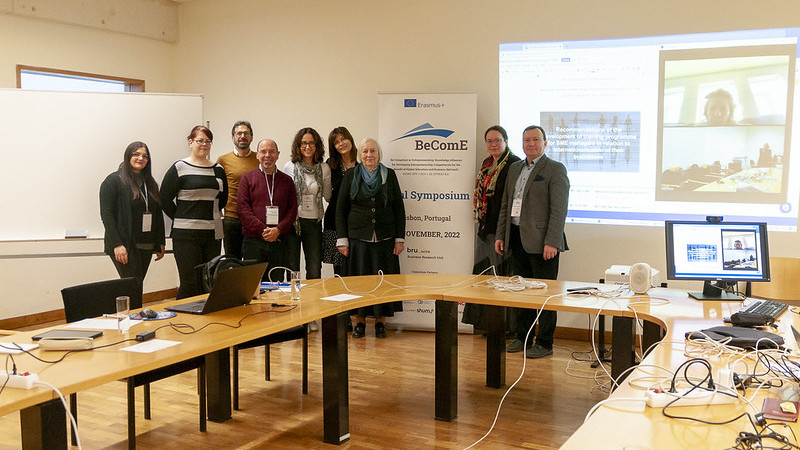On November 30th, 2022, took place at Iscte the BeComE work meeting.
The BeCoMe project – Be Competent in Entrepreneurship (https://becomeentrepreneurial.org) – is an international project that included five European countries that have been enrolled with academic and organizational partners to identify and unpack the entrepreneurial competencies needed for students and workers. The main goal of the project was to develop students’ entrepreneurial competencies (ECs) that could meet the challenges and demands of the labour market expectations towards professional competencies of employees and entrepreneurs taking into account the macro-level developments such as globalization, technological advancements, and demographic shifts.
For that aim, several studies across Portugal, Finland, Italy, Poland, and Estonia have been conducted. The different studies involved different methods and samples, among them higher education students, higher education teachers, managers, and practitioners.
Overall, the findings showed that there are four crucial dimensions of EC:
(1) self-management(growth mindset, autonomous motivation, emotional regulation, and metacognition);
(2) managing social situations (personal initiative, communication, and cooperation);
(3) acting upon opportunities and ideas(understanding environment, opportunity discovery and exploitation and financial literacy), and;
(4) creative thing and finding solutions (creativity, planning, problem-solving, and ethical and sustainable thinking).
In each dimension, there are different sub-competencies that must be trained through practical and active learning methods in management courses. Teachers can thereby encourage academic crafting, and coaching, give regular feedback about the learning process, and offer support and autonomy using practical activities and experimentation. Plus, each competence can be trained coupled with others, that is, teachers do not need to isolate competencies to teach and train, instead they can do it together (for instance, communication and emotional regulation). Moreover, these competencies can make a significant difference in the future of workers as they can easily contribute to a positive learning environment at their work. To get a positive learning environment is it also relevant that managers and supervisors actively (1) recognize their workers as learners and experts, and (2) develop efforts to stimulate and influence organizational development through the involvement of everyone in those changes (for instance, through the increase of social or structural job resources or reduce cognitive demands).
This project started in January 2020, and counts with the participation of BRU-Iscte researchers Henrique Duarte (local coordinator), Ana Junça Silva, António Caetano and Susana Santos.

